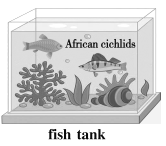-
International Museum Day is celebrated on May 18 each year. Here are some special museums that you must see.
| 
| Sweet Museum, Russia Do you love candy? Don't miss the sweet world in Russia. You can find different kinds of sweet food here. But they are just models! Look, how big the lollipops(棒棒糖) are! People can ride on them. Want to taste the ice-cream? Be careful—the ice-cream balls are lights! |
| 
| Museum of Failure, Sweden There are more than 100 failed products in the museum. Some of them come from the world's most successful companies, like the Newton computer from Apple. Maybe success stories are similar and kind of boring, but we can find interesting stories in failures and learn something from them. |
| 
| Cancun Underwater Museum, Mexico It's a secret garden under the sea. You can either dive (潜水) or take a glass boat into it. Down here, sea animals live around 400 sculptures (雕塑). Each sculpture tells a story and it's made of special material, which is good for the sea life. |
| 
| Museum of Broken Relationships, Croatia Some relationships end—with lovers, with dreams and with cities. This special museum has a collection of objects from people around the world who want to lock their memories. Each of the object shares stories of their past relationships. |
1.You can find different kinds of sweet food in Sweet Museum in________.
A.Russia B.Sweden C.Mexico D.Croatia
2.If you're interested in sculptures, you may go to ________.
A.Sweet Museum B.Cancun Underwater Museum
C.Museum of Failure D.Museum of Broken Relationships
3.People can know ________ in Museum of Failure and Museum of Broken Relationships.
A.lollipops B.sea animals C.stories D.glass boats
-
My First Marathon (马拉松)

A month before my first marathon, one of my ankles was hurt and this meant not running for two weeks, leaving me only two weeks to train. Yet, I decided to go ahead.
I remember back to my 7th year in school. After my first PE class, the teacher told me that I was "not athletic (运动型的)". The idea that I was "not athletic" stuck with me for years. When I started running in my 30s, I realized running was a fight against myself, not about competition or whether or not I was athletic. It was all about the fight against my own body and mind. A test of wills!

The night before my marathon, I dreamed that I couldn't even find the finish line.
I woke up, being helpless and nervous but ready to prove something to myself. Shortly after crossing the start line, my shoe lace became untied. So I stopped to tie it. Not the start I wanted! I had been left behind others at the beginning.
At mile 3, I passed a sign: "GO FOR IT, RUNNERS!"
By mile 17, I became out of breath and the once-hurt-ankle hurt badly, but I still stayed the course, walking a bit and then running again.
As I came near to mile 23, I could see my wife waving a sign. She is my biggest fan. She never minded the alarm clock sounding at 4 a. m. or questioned my expenses on running.
I was one of the final runners to finish. But I finished! And I got a medal. In fact, I got the same medal as the one that the person who came in first place had. I can now call myself a "marathon winner".
1.What happened to the writer a month before his marathon?
A.He hurt his knees. B.He got hurt in one ankle.
C.He wanted to give up. D.He went back to his school.
2.According to the PE teacher in the 7th year in school, the writer________.
A.didn't train hard B.could finish the marathon
C.wasn't good at sports D.would get support from many fans
3.What does the story mainly tell us?
A.One is never too old to learn.
B.Failure is the mother of success.
C.A man can make success with the help of family.
D.A winner is the one with great effort and a strong will.
-
Each year on Feb 21,UNESCO (联合国教科文组织) holds an International Mother Language Day (IMLD). The event is to help people to pay attention to the disappearance of the world's languages; many of them are disappearing each year. UNESCO sees this as a terrible fact.
What happens when a language dies out? Something great is lost—not just sounds and words but the way that people understand the world and communicate with each other. We keep different cultures and traditions through languages. Killing a language means all these are killed too.
Through IMLD, more and more people come to realize the terrible situation and try to stop it. Google's 2018 Endangered Languages Project is a good example. Many speakers and protectors of endangered languages upload (上传) texts, audios (音频) and videos to the project website. They want to introduce the way that people communicate and express themselves around the world.
The Myaamia Project is the same kind of effort to revive the language spoken by the Miami tribes (部落) of the United States. Project members work to encourage people to study and communicate with this language, which died out in the 1960s.
These activities give life to those endangered languages. People who work to keep languages alive are not limited to the past. Many young people design apps and use social media (媒体) to support their activities. They "spread the word" to save the world.
So, while the problem of disappearing languages remains a very serious one, there is hope. We all have a special feeling of our mother languages. This is why we should remember the wise words of late president of South Africa, Nelson Mandela: "If you talk to a man in a language he understands, that goes to his head. If you talk to a man in his own language, that goes to his heart."
1.What did people do in Google's 2018 Endangered Languages Project?
A.They provided books on communication skills.
B.They discussed how to make good use of the Internet.
C.They shared materials about endangered languages online.
D.They translated endangered languages into mother languages.
2.The word "revive" in Paragraph 4 probably means "________."
A.start reusing B.remember choosing
C.try creating D.continue experimenting
3.What can we infer from Paragraph 5?
A.The disappearance of languages has already stopped.
B.It's impossible for young people to protect languages.
C.Fewer and fewer people work to keep languages alive.
D.Young people have creative ways to protect languages.
4.The writer mentions Nelson Mandela's words in order to ________.
A.express his thought of language protection
B.stress the importance of one's mother language
C.tell the trouble in learning endangered languages
D.remind us of the problem of disappearing languages
-
Smarter than We Thought
It's a popular belief that fish can't remember anything for longer than seven seconds.
It may seem sad to think that they don't remember what they've eaten or where they've been, and they don't recognize you or any of their friends—every moment in their lives would be like seeing the world for the first time.

But don't be so quick to feel sorry for them. A recent study has found that fish have much better memories than we used to think. In fact, certain kinds of fish can even remember events from as long as 12 days ago, BBC reported.
In the study, researchers from MacEwan University in Canada trained a kind of fish called African cichlids to go to a certain area of their tank to get food. They then waited for 12 days before putting them back in the tank again.
Researchers used computer software (软件) to monitor the fish's movements. They found that after such a long break the fish still went to the same place where they first got food. This suggested that they could remember their past experiences.
In fact, scientists had been thinking for a long time that African cichlids might have a good memory.
An earlier study showed that they behaved aggressively (攻击性地) in front of certain fish, perhaps because they remembered their past fights. But until the latest findings, there was no clear evidence (证据).
Just as a good memory can make our lives easier, it also plays an important part when a fish is trying to live in the wild.
"If fish are able to remember that a certain area has safe food, they will be able to go back to that area without putting their lives in danger," lead researcher Trevor Hamilton told Live Science.
For a long time, fish were placed far below chimpanzees (黑猩猩), dolphins and mice on the list of smart animals. But this study has given scientists a new understanding of their intelligence(智力).
So next time you are watching your pet fish from outside the tank, perhaps you should feel closer to them—they may remember who you are.
1.What is a popular belief about fish?
A.Fish can remember things for a very short time.
B.Fish can only remember part of their experiences.
C.Fish can remember things that happened 12 days ago.
D.Fish can remember things for longer than three minutes.
2.According to the passage, fish can ________with a good memory.
A.know where to escape and keep safe
B.find their enemies and fight with them
C.remember where to get food and stay alive
D.recognize their friends and help each other
3.What can we learn from the passage?
A.Our pet fish can surely remember who we are.
B.Fish are as clever as chimpanzees, dolphins and mice.
C.Clear evidence has shown certain fish can remember their past fights.
D.African cichlids can even remember events from as long as 12 days ago.







